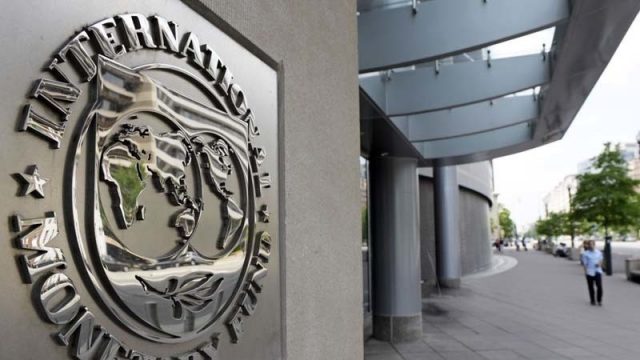Islamabad: Pakistan and the IMF will start their negotiations Thursday for the release of $710 million second tranche of a $3 billion loan to the cash-strapped country to stabilise its debt-ridden economy – a real challenge for the caretaker government ahead of the elections expected in January.
A review mission from the International Monetary Fund (IMF) will arrive here Thursday and review the country’s economic performance during the first three months of the current fiscal year – from July to September.
“The IMF team led by Nathan Porter will field a mission to Pakistan starting November 2 on the first review under the current Stand-By Arrangement (SBA) of $3 billion,” Esther Perez, the resident representative of the IMF, said last week.
The IMF had proposed November 7 in anticipation of a delay in compiling the first quarter data but the Ministry of Finance assured that all the relevant data was available for the review talks, according to local media reports.
While approving the $3 billion loan in July this year, the Washington-based global lender had also released the first tranche of $1.2 billion. Although essentially a bridge loan, it offered much respite to Pakistan, which was battling an acute balance of payments crisis and falling foreign exchange reserves.
“Pakistan has achieved the structural bench agreed with the IMF and its important condition of increasing gas prices has also been met. Similarly, the circular credit is also within the prescribed limit and the fiscal deficit is in accordance with the set target as well,” the Express Tribune newspaper reported on Wednesday ahead of the talks.
It said that the Federal Board of Revenue’s tax collections have exceeded their set target.
There are some difficulties about the external financing required for the budget deficit, but this issue will also be resolved easily too because of the assurances given by friendly countries including China, the UAE and Saudi Arabia, the paper said.
If the review mission is satisfied with Pakistan’s actions, it will recommend the release of the next instalment of the loan to the IMF board, which will approve the release of $710 million in December to the country, it added.
Pakistan’s economy has been in a free fall mode for the last many years, bringing untold pressure on the poor masses in the form of unchecked inflation.
The federal government and the State Bank of Pakistan remain hopeful that they will comfortably complete the review on the back of meeting the conditions agreed with the IMF in July.
Highly placed sources said that during the recently held IMF-World Bank annual meetings, the Pakistani delegation faced three major questions in almost every meeting.
The finance ministry officials were asked about the status and role of the Special Investment Facilitation Council, the prospects of next elections, and the mandate of the interim government, the sources said.
A clarity on the next general election date could have strengthened the hands of the Ministry of Finance during the upcoming review talks, although the IMF has not explicitly attached any such condition.
Unlike the last failed $6.5 billion programme, the Ministry of Finance seemed committed to meeting the conditions set for the $3 billion programme during the past three months. At many occasions, the finance secretary appeared receptive to the IMF queries and ensured transparency.
This was contrary to the past practice when the Ministry of Finance appeared dragging its feet on the $6.5 billion deal that eventually collapsed. The $6.5 billion Extended Fund Facility could not be completed and the programme expired on June 30 with $2.6 billion undisbursed.
IMF Director of Strategic Communications Julie Kozack had said in July that “steadfast implementation” of the nine-month SBA was “critical to Pakistan’s future”.
SBP Governor Jameel Ahmad said last month that the central bank was “comfortably placed” in terms of meeting end-September IMF targets. He said that SBP’s forward foreign exchange liabilities had declined and the forward book target of $4.2 billion for end-September 2023 agreed with the IMF was met by a wide margin.
Similarly, the SBP is also very comfortably placed to meet the other end-September IMF targets of a negative $14.5 billion Net International Reserves (NIR) and Net Domestic Assets (NDA) of Rs15 trillion, according to the central bank governor.
Pakistan’s shaken economy has compelled it to approach several nations seeking fiscal help in the form of loans.
Ahead of the IMF talks, Pakistan had asked Saudi Arabia to provide a $1 billion oil facility on deferred payment for the calendar year 2024.
PTI
